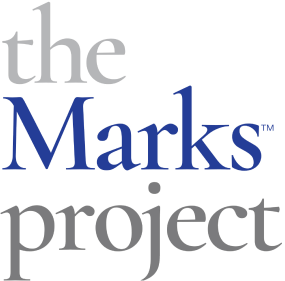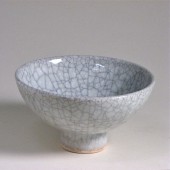![]() Printer version
Printer version
Harding Black
1912 Born Aransas Pass, Texas
2004 Died Reno, Nevada
PRIMARY WORK EXPERIENCE
1932-1956 Ceramic instructor, Witte Museum, San Antonio, Texas
1937-1939 Superintendent of ceramic installation in reconstruction project co-sponsored by the National Youth Administration and the WPA, San Antonio, Texas
1956-1997 Studio Potter
BIOGRAPHY
Harding Black made functional stoneware pots fired in a high-fire, reduction atmosphere kiln; he also worked in mid-range fired earthenware. His earliest forms were coil built in the manner of Pueblo pottery. Other forms include wheel thrown bowls, slip-cast cylinders, ashtrays in the shape of sombreros for use in a Mexican restaurant, and table top-sized sculpture. He also made jars, compotes, vases, pitchers, and birdfeeders.
Harding Black is known for his extensive glaze research. He is considered a pioneer of modern handmade pottery in Texas. As a self-taught chemist, he reproduced ancient Chinese and Oriental glazes and was famed for sharing his extensive catalog of glazes he had personally formulated.
In 1931, Harding Black joined the Witte Museum Archaeological Society. This gave him access to the Museum’s collection of Native American pottery, and marked the beginning of his interest in and work with clay. Rudolph Staffel was his first pottery teacher in 1933; his first kiln was built with plans from Newcomb College. Other influences include Oriental Pottery, and Bernard Leach’s A Potters Book, first published in 1940.
In the 1950’s, Harding Black became closely affiliated with Georgeanna Greer, a local pediatrician, collector, and ceramic history aficionado who studied with him at the Witte museum. They shared an interest in rediscovering abandoned kilns and old potteries, some of them family slave potteries, such as the Wilson Pottery. In 1971 they co-wrote The Meyer Family: Master Potters of Texas.
The Harding Black Ceramics Research Center at Baylor University in Waco, Texas houses The Harding Black Collection and Archive including research material, extensive glaze tests, as well as glaze recipes, records, and hand written notes.
In 1980, Harding Black donated his personal papers, correspondence, photos, etc. to the Smithsonian Research Collection.
PUBLIC COLLECTIONS
American Museum of Ceramic Art, Pomona, California
The Harding Black Ceramics Research Center, Baylor University, Waco, Texas
BIBLIOGRAPHY
Black, Harding and Georgeanna Greer. The Meyers Family: Master Potters of Texas. San Antonio TX: Trinity University Press, 1971.
Black, Harding. “Opening the Door to Copper-Red Glazes.” Ceramics Monthly 1 no. 1 (January1953).
____________. “Iron Spotted Glazes.” Ceramics Monthly 2, no. 2 (February 1954).
____________. “Lava Glazes.” Ceramics Monthly 9, no. 8 (October 1961).
Britt, John. The Complete Guide to High-Fire Glazes. Asheville NC: Lark Books, 2007.
Lange, Jean. “Harding Black, Texas Potter.” Ceramics Monthly 12, no. 9 (November 1964).
Turnquist, Thomas. “Harding Black: Pioneer Potter.” Journal of American Art Pottery Association 5 no. 5 (September/October 1990).
 | Center For Craft |
 | AMOCA American Museum of Ceramic Art |
The typical mark is full name, “Harding Black,” in script, incised into a contrasting color, usually on base of pot, often with year beneath mark.
Method: Thrown
Dimensions: 3. 25" x 10.75"Surface Technique: Crystalline Glaze, Glaze
Citation: "The Marks Project." Last modified February 13, 2024. http://www.themarksproject.org:443/marks/black



















